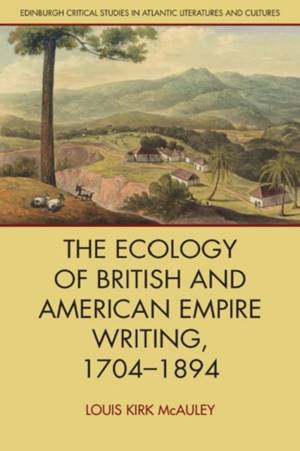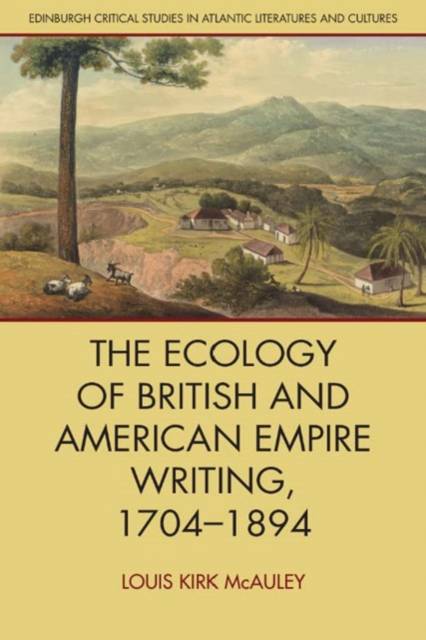
Bedankt voor het vertrouwen het afgelopen jaar! Om jou te bedanken bieden we GRATIS verzending (in België) aan op alles gedurende de hele maand januari.
- Afhalen na 1 uur in een winkel met voorraad
- In januari gratis thuislevering in België
- Ruim aanbod met 7 miljoen producten
Bedankt voor het vertrouwen het afgelopen jaar! Om jou te bedanken bieden we GRATIS verzending (in België) aan op alles gedurende de hele maand januari.
- Afhalen na 1 uur in een winkel met voorraad
- In januari gratis thuislevering in België
- Ruim aanbod met 7 miljoen producten
Zoeken
The Ecology of British and American Empire Writing, 1704-1894
Louis Kirk McAuley
€ 201,45
+ 402 punten
Uitvoering
Omschrijving
At this critical juncture in which the biodiversity of planet Earth appears to be shrinking fast and furiously, Louis Kirk McAuley invites us to consider the ways in which particular unruly natures, including animals, plants and minerals, actively intervene in literature to decentre the human. Drawing upon invasion biology, McAuley offers transformative ecocritical interpretations of eighteenth- and nineteenth-century British and American literature and highlights the heterarchical nature of empire building. This includes analyses of texts composed by (or about) persons residing at, or just outside, the edges of the British and American Empires, including St Kitts and Nevis, Haiti, Cuba, Hawaii and Samoa, which were built around the global transfer of animals and plants. Offering biotic readings of this literature, McAuley highlights the human place in nature and provides practical literary examples of the ways oceans facilitate the confusion of time and place.
Specificaties
Betrokkenen
- Auteur(s):
- Uitgeverij:
Inhoud
- Aantal bladzijden:
- 320
- Taal:
- Engels
- Reeks:
Eigenschappen
- Productcode (EAN):
- 9781399527149
- Verschijningsdatum:
- 12/01/2024
- Uitvoering:
- Hardcover
- Formaat:
- Genaaid
- Afmetingen:
- 156 mm x 234 mm
- Gewicht:
- 625 g

Alleen bij Standaard Boekhandel
+ 402 punten op je klantenkaart van Standaard Boekhandel
Beoordelingen
We publiceren alleen reviews die voldoen aan de voorwaarden voor reviews. Bekijk onze voorwaarden voor reviews.









